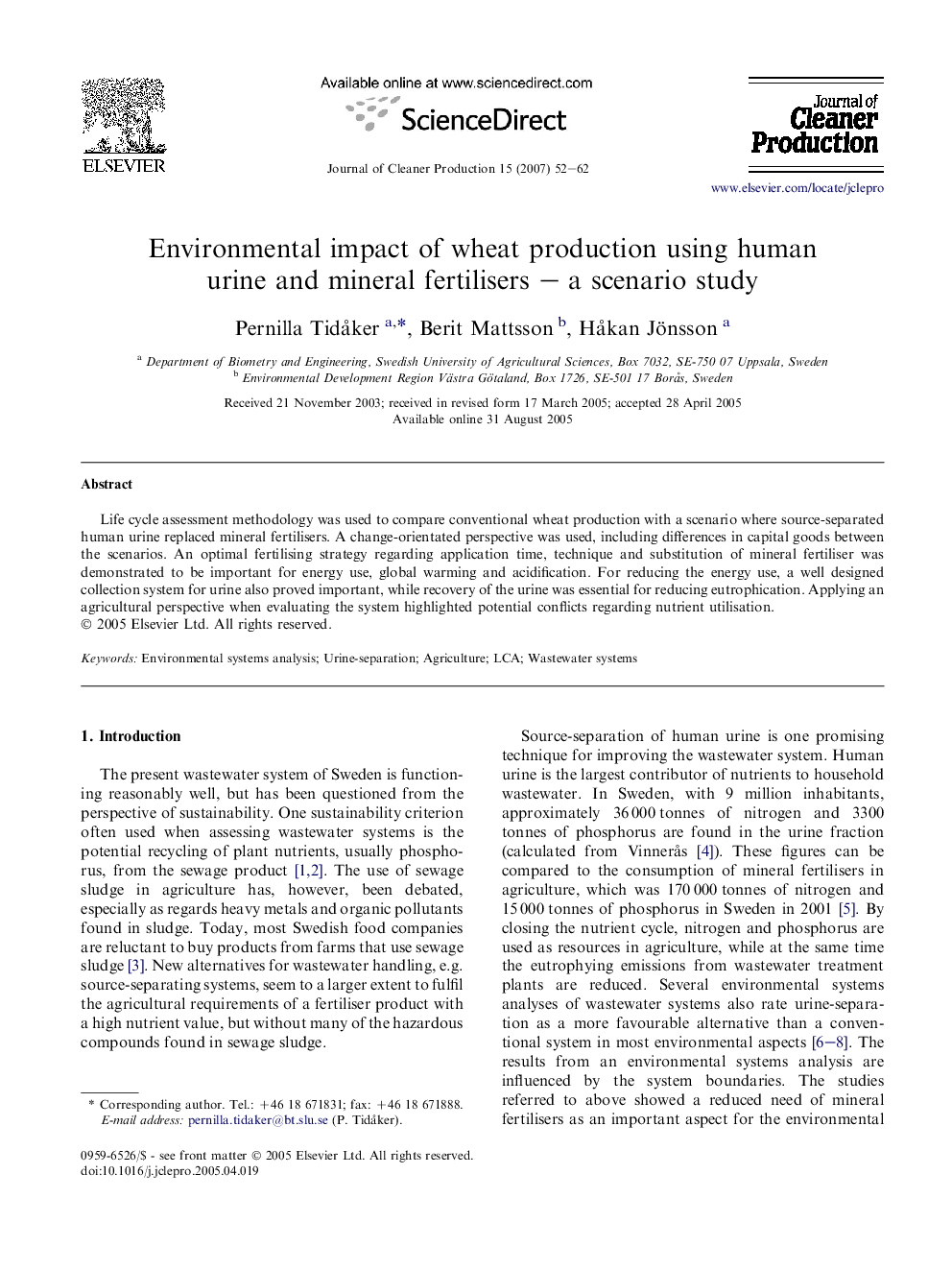| Article ID | Journal | Published Year | Pages | File Type |
|---|---|---|---|---|
| 1747239 | Journal of Cleaner Production | 2007 | 11 Pages |
Life cycle assessment methodology was used to compare conventional wheat production with a scenario where source-separated human urine replaced mineral fertilisers. A change-orientated perspective was used, including differences in capital goods between the scenarios. An optimal fertilising strategy regarding application time, technique and substitution of mineral fertiliser was demonstrated to be important for energy use, global warming and acidification. For reducing the energy use, a well designed collection system for urine also proved important, while recovery of the urine was essential for reducing eutrophication. Applying an agricultural perspective when evaluating the system highlighted potential conflicts regarding nutrient utilisation.
